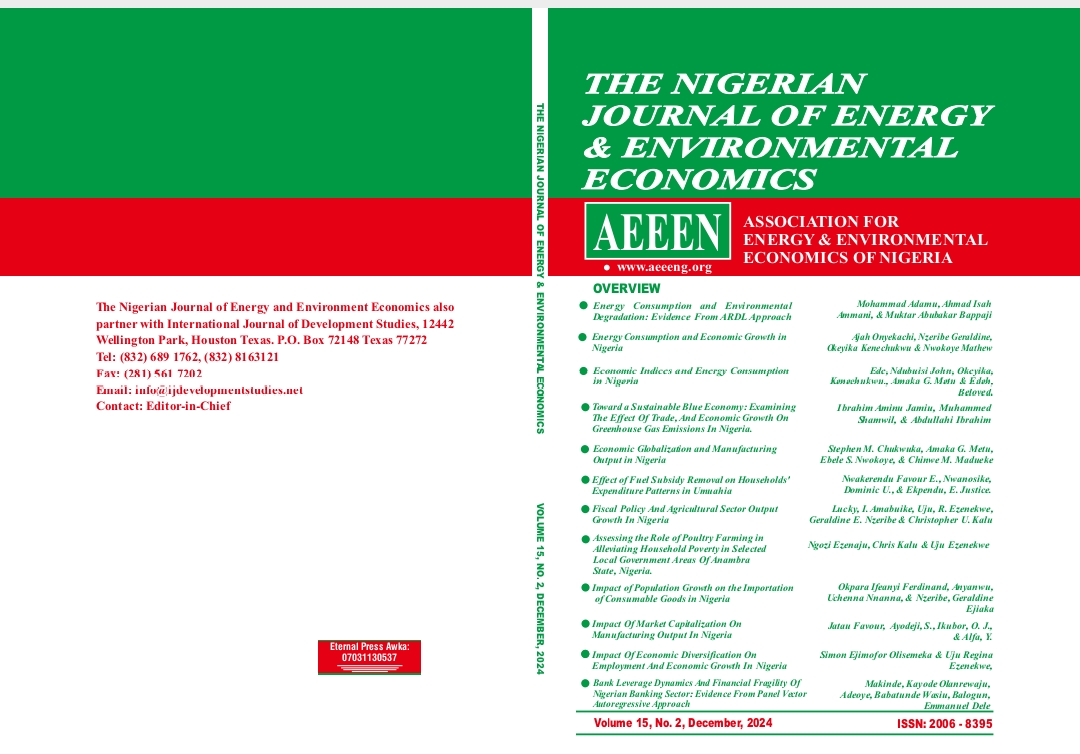EFFECT OF FUEL SUBSIDY REMOVAL ON HOUSEHOLDS’ EXPENDITURE PATTERNS IN UMUAHIA
Keywords:
Expenditure patterns, fuel subsidy, household income, Umuahia, transportationAbstract
Fuel subsidy is a financial assistance provided by the government to reduce the cost of fuel for
consumers, aimed at making fuel more affordable for the general population. Fuel subsidy
removal policy is very responsive to the structure of households’ expenditure patterns and
country’s level of development. This study therefore investigated how household expenditure
pattern changes following the fuel subsidy removal especially in Umuahia metropolis. The
study adopted quantitative research method and sample size of 212 respondents selected from
the population. The data which were collected using a structured questionnaire and observation
method was analyzed using descriptive statistics, ANOVA and correlation analysis. The
findings showed that the overall spending of the households on food since the removal of fuel
subsidy stood at 69.3%, indicating an increase in the overall spending on food. This result
showed that the overall households spending on food increased since the removal of fuel
subsidy without commensurate increase in the income of the households and triggered
excruciating economic hardship on the residents. Based on the findings, the study recommends
the implementation of targeted social welfare programs to support vulnerable households
affected by fuel subsidy removal.


